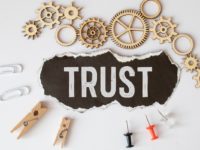Australians are cleaning up after yet another flood disaster. Huge sections of the East coast were subject to a ‘rain bomb’, a new term that is certain to enter our meteorological discourse.
Again, we are told that this event is unprecedented – it’s never happened before. The fact that Gympie, Lismore and other communities were flooded is certainly not unprecedented. Some were flooded a mere two months ago!
Also again, our political leaders praised the resilience of the people affected. It’s a go-to phrase whenever the metaphorical fan encounters a substance that should not be near a fan, and people are hurting.
Lets look at the word “Resilience”.
Definitions of resilience vary, but they are pretty much all a variation of this one I found in an academic paper: ‘”Resilience is the capacity to prevent or mitigate losses and then, if damage does occur, to maintain normal living conditions as far as possible, and to manage recovery from the impacts.’”
When psychologists talk about resilience, they include the possibility of improvement: “Becoming more resilient not only helps you get through difficult circumstances, it also empowers you to grow and even improve your life along the way”. (American Psychological Association)
All that seems positive. Being resilient has a positive outcome – recovery and even growth or improvement. What’s not to like?
But what if it’s not all rosy? What if there’s good resilience and bad resilience? What if romanticising and congratulating us on our resiliency encourages us to accept our lot – flood, fire, inequality … Or worse, is an excuse for political leaders to avoid making the long-term fixes that are clearly necessary?
I believe there are three reasons why we should be a little more circumspect in our eager embrace of the term Resilience. We need to think a bit more about how we are using it in the aftermath of a disaster that has cost lives, money, property, infrastructure, and so much more.
- Definitions of resilience are all about being positive, and looking forward. Of course, those are good things for us all to do, at all times. But in a crisis, this leaves no room for those affected to feel vulnerable. Being positive is paramount, so a person who, for one reason or another, can’t get on the positivity train can be left feeling like a non-resilient failure when they are stressed and anxious.
- Resilience can be romanticised. TV presenters and politicians gush about the wonderful resilience of a particular community that is knee-deep in mud. When resilience is romanticised, we may be inclined to put up with bad stuff for longer.
- Telling people who have undergone a disaster that they are wonderfully resilient can be an excuse for Government failures in actually finding solutions to problems. Filipinos say “Ganyan talaga, e” – that’s the way it is – when yet another typhoon comes to visit. They don’t expect their Government to do anything to mitigate the flooding that results, and they don’t expect anything to change.
The best way to explain this point is with a quote by Tracie Washington, a Civil Rights Attorney from New Orleans, in the wake of Hurricane Katrina: “Stop calling me resilient. I’m not resilient. Because every time you say, ‘Oh, they’re resilient,’ you can do something else to me.”
Climate change (I call it collapse) will beget more and more ‘unprecedented’ weather events. When the next, inevitable disaster happens, watch out for the resilience chorus. Maybe being called a resilient community is not as benign as we first thought. Are we:
- excluding others from the opportunity to grieve;
- romanticising a standard that is impossible to reach, or at worst, dysfunctional, or
- being sidelined into putting up with inaction on solving the actual problem?
















